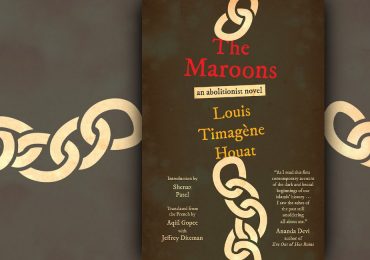Toni Morrison, celebrated novelist and Nobel Laureate, has died, aged eighty-eight.
Morrison passed away at the Montefiore Medical Center in New York on Monday night, according to her publisher, Alfred A Knopf.
Morrison’s family issued a statement through the publisher, saying she died after a brief illness.
‘Toni Morrison passed away peacefully last night surrounded by family and friends,’ the family announced. ‘She was an extremely devoted mother, grandmother, and aunt who revelled in being with her family and friends. The consummate writer who treasured the written word, whether her own, her students or others, she read voraciously and was most at home when writing.’
Morrison was born in Lorain, Ohio, on 18 February, 1931. She attended the historically black Howard University, and graduated with a BA in English in 1953, before earning an MA from Cornell University in 1955.
In 1965, Morrison joined Random House as an editor, and two years later became their first black woman senior editor in the fiction department. During her nineteen years at the publisher she did much to bring black authors to the fore. One of the first books she produced was the groundbreaking anthology Contemporary African Literature, which contained work by writers such as Wole Soyinka and Chinua Achebe, and she is also credited with fostering a new generation of African American authors, including Toni Cade Bambara, Angela Davis and Gayl Jones.
In 1974, Morrison compiled The Black Book, a groundbreaking collection of material on African American history and culture, including photographs, illustrations, advertisements, plans, and sheet music, from the early days of slavery to the present. The book was nominated for the National Book Award, and in 2009 was celebrated with a 35th Anniversary Edition.
Morrison was the author of eleven novels, as well as a number of children’s books, plays and collections of non-fiction. Her debut novel, The Bluest Eye, was published in 1970, when she was thirty-nine.
Morrison’s second novel, Sula, was nominated for the National Book Award, but it was her third, Song of Solomon, that brought her international acclaim, winning the National Book Critics Circle Award.
Beloved, her third novel, was published in 1987, and was her biggest critical and commercial success. Despite this, the novel failed to win the prestigious National Book Award or the National Book Critics Circle Award, an omission that was protested by forty-eight black critics and writers, including Maya Angelou, who signed a statement published in The New York Times Book Review lamenting the fact that Morrison was ‘yet to receive the national recognition that her five major works of fiction entirely deserve’.
Two months later, Beloved won the Pulitzer Prize for fiction. In 2006, The New York Times Book Review named Beloved the best work of American fiction published in the previous twenty-five years.
Beloved was the first of three novels, sometimes called the Beloved Trilogy, which span one hundred years of black life in the United States. Morrison herself said the books were intended to be read together, explaining: ‘The conceptual connection is the search for the beloved—the part of the self that is you, and loves you, and is always there for you.’
The second novel in the trilogy, Jazz, about a love triangle during the Harlem Renaissance, was published in 1992, and the third, Paradise, about citizens of an all-black town, in 1997.
In between the publication of those two books, Morrison’s acclaim skyrocketed. In 1993, she was awarded the Nobel Prize in Literature, becoming the first black woman to receive the award. The Swedish Academy described her as an author ‘who in novels characterised by visionary force and poetic import, gives life to an essential aspect of American reality’.
In 1996, the National Endowment for the Humanities selected her for the Jefferson Lecture, the United States federal government’s highest honour for ‘distinguished intellectual achievement in the humanities.’ That year she was also honoured with the National Book Foundation’s Medal of Distinguished Contribution to American Letters.
The year after the publication of Paradise, Morrison was featured on the cover of Time magazine, becoming only the second female writer of fiction and second black writer of fiction to achieve that honour.
In her Nobel speech, Morrison spoke about the power of language and words, and closed her address with the words:
‘We die. That may be the meaning of life. But we do language. That may be the measure of our lives.’
In 2010, Morrison appeared at PEN World Voices for a conversation with Marlene van Niekerk and Kwame Anthony Appiah about South African literature. The conversation is available to watch online:
Morrison was the Chair in Humanities at Princeton, where she taught from 1989 to 2006, and was professor emeritus at the university. She received the Presidential Medal of Freedom in 2012. In 2016, she received the PEN/Saul Bellow Award for Achievement in American Fiction. Her final novel, God Help the Child, was published in 2015.
Toni Morrison bibliography
Novels
1970 The Bluest Eye
1973 Sula
1977 Song of Solomon
1981 Tar Baby
1987 Beloved
1992 Jazz
1997 Paradise
2003 Love
2008 A Mercy
2012 Home
2015 God Help the Child
Children’s literature (with Slade Morrison)
1999 The Big Box
2002 The Book of Mean People
2007 Who’s Got Game? The Ant or the Grasshopper?, The Lion or the Mouse?, Poppy or the Snake?
2009 Peeny Butter Fudge
2014 Please, Louise
Short fiction
1983 ‘Recitatif’
2015 ‘Sweetness’
Plays
1986 Dreaming Emmett
2011 Desdemona
Libretto
2005 Margaret Garner
Non-fiction
1974 The Black Book
1992 Playing in the Dark: Whiteness and the Literary Imagination
1992 (editor) Race-ing Justice, En-gendering Power: Essays on Anita Hill, Clarence Thomas, and the Construction of Social Reality
1997 (co-editor) Birth of a Nation’hood: Gaze, Script, and Spectacle in the OJ Simpson Case
2004 Remember: The Journey to School Integration
2008 What Moves at the Margin: Selected Nonfiction, edited by Carolyn C. Denard
2009 (editor) Burn This Book: PEN Writers Speak Out on the Power of the Word
2017 The Origin of Others
2019 The Source of Self-Regard: Essays, Speeches, Meditations





